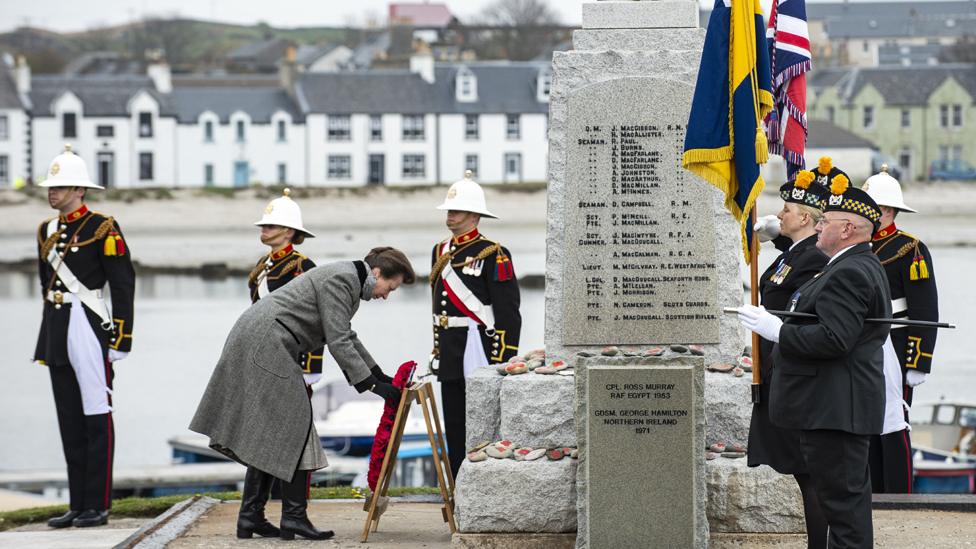Ceremony to remember sinking of HMS Otranto on Islay
- Published
The troopship HMS Otranto sank off the coast of Islay in 1918
A ceremony has taken place on the island of Islay to mark the centenary of an almost forgotten World War One troopship disaster.
Around 600 men were rescued when HMS Otranto was rammed by another ship in a storm in October 1918.
But the hundreds of soldiers and crew who remained on board the ship were not so lucky - it was thrown on to a reef and smashed to pieces.
Most of the bodies were recovered from the sea and laid to rest by islanders.
Almost 500 people are thought to have died in the disaster.
Former Nato Secretary General Lord Robertson, whose grandfather Malcolm MacNeill was a police officer on the island in 1918, led the tributes.
He praised the "heroism" and "raw courage" of local people who responded to the disaster - nursing survivors and burying the dead.
"In the comfortable lives we lead today, how can we possibly begin to imagine what the Otranto disaster meant to this island?" he said.
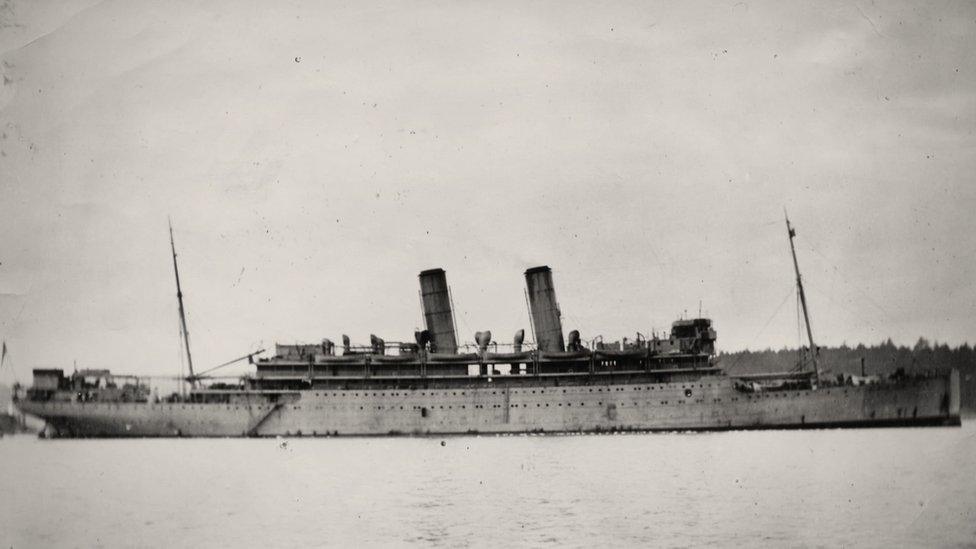
The HMS Otranto was carrying US troops across the Atlantic when disaster struck
The Otranto tragedy came after the SS Tuscania, carrying 2,500 US soldiers and British crew, was sunk by torpedo off Islay's coast in February 1918.
Lord Robertson compared the impact on the island community of the first sinking to that felt by residents of Lockerbie after the downing of Pan Am 103 - but then they were hit by a second catastrophe.
He said: "The dramatic shock of the event, made so much worse by the miserable fact that it was happening for the second time in only eight months, must have been both sobering and sickening.
"What we can do though is to remember and commemorate and honour those who died in our service, those who were saved and their descendants alive today because of it, and of course those remarkable folk from our strong, resilient, generous and spirited Islay who did so much for so many a hundred years ago from today."
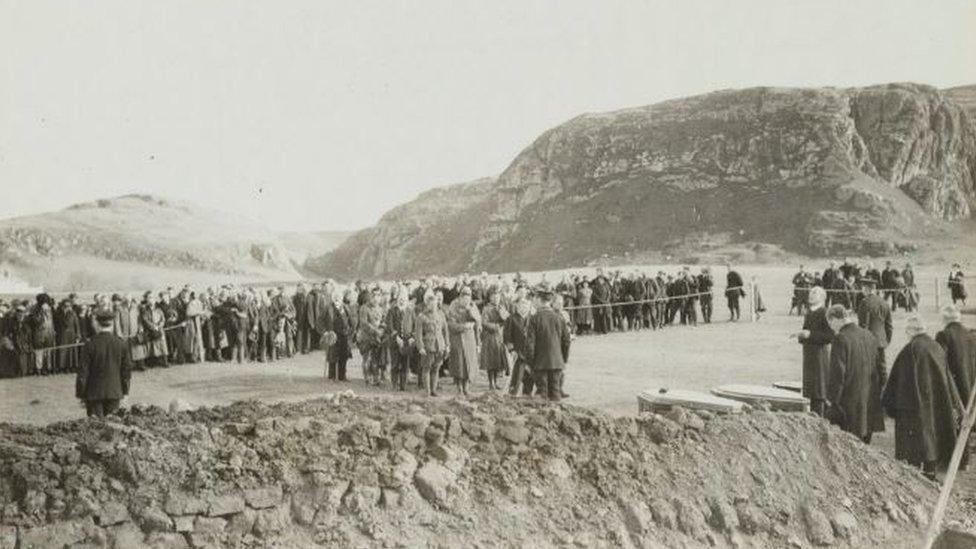
The funeral on Islay of 199 American soldiers who were victims of the Otranto disaster
The Otranto was part of a convoy carrying US soldiers to war when it encountered the storm off Islay's Atlantic coastline.
As they approached the west coast of Scotland in near hurricane conditions, it was accidentally rammed by another ship in the convoy.
The HMS Kashmir ripped the Otranto's steel hull wide open.
But the Kashmir and the rest of the convoy sailed on, under orders not to give assistance for fear of U-boat attack.
Despite the weather, the Royal Navy destroyer HMS Mounsey came to the rescue under the command of Lieutenant Francis Craven.
Chuck Freedman's grandfather, Sam Levy, was among the survivors.
"He was one of the fortunate 600 or so that were able to jump from the Otranto to the destroyer commanded by Captain Craven," Mr Freedman told BBC Scotland.
"He was the real hero of the story - he and his crew - who made several passes in heavy seas to come alongside the Otranto."
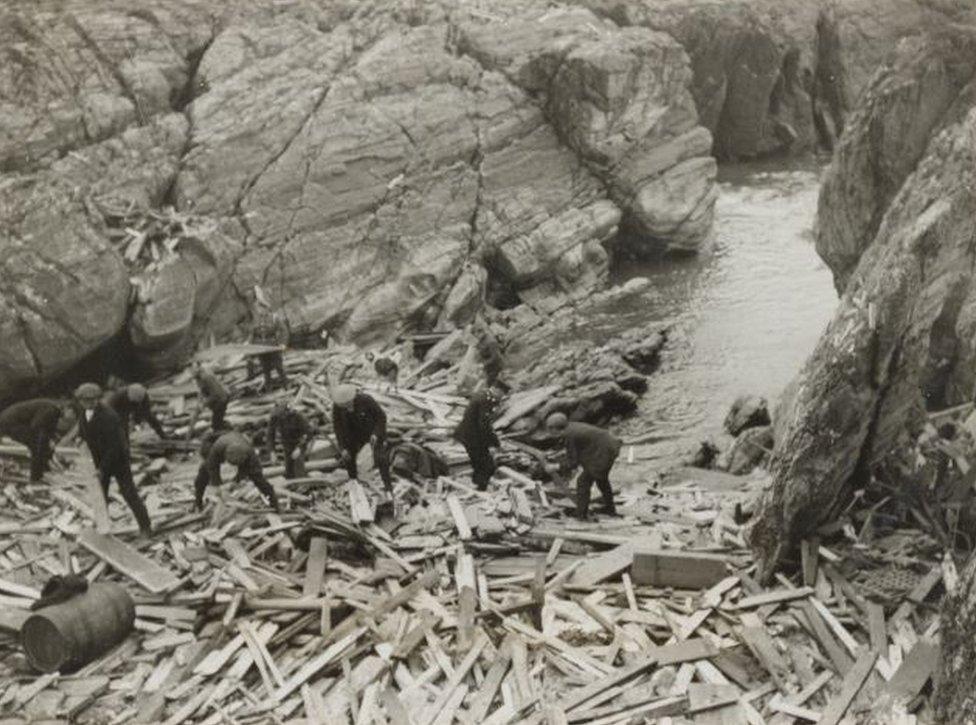
Searching in the wreckage for bodies of victims of the US troopship Otranto
Sandy MacTaggart's uncles helped recover the dead when the Otranto went down.
"It was a terrible disaster, that was all they could say, there was nothing they could do," he said.
"They just helped when the bodies came in on the shore. It was a grim job."
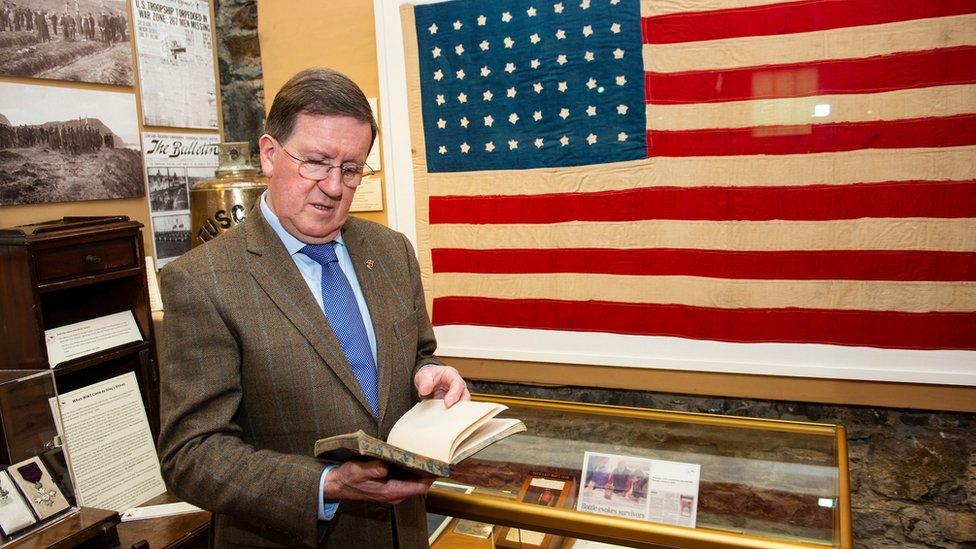
Lord Robertson's grandfather was head of the local police force at the time of the tragedy
As a police officer, Lord Robertson's grandfather had to report what happened and attempt to identify the drowned men. His descriptions filled 81 pages in his notebook.
Speaking before the ceremony, he said: "When they were finally buried, it fell to my grandfather to correspond with the families in the United States who were desperate to know more about the fate of their loved ones.
"They wrote with information which they hoped could be used to identify the bodies of their sons, husbands or brothers, and in an extraordinary example of compassionate public service, my grandfather replied to each letter, providing what information he could."
Jenni Minto, Chair of WW100 Islay, said: "One hundred years ago the people of Islay were faced with the horrors of war arriving on their shores for the second time that year.
"Again they worked with compassion and humanity to ensure those who survived the Otranto tragedy were cared for as though they were their own, and those who sadly died were buried with dignity and respect. Today we paid tribute to those selfless acts and remember those who were lost."
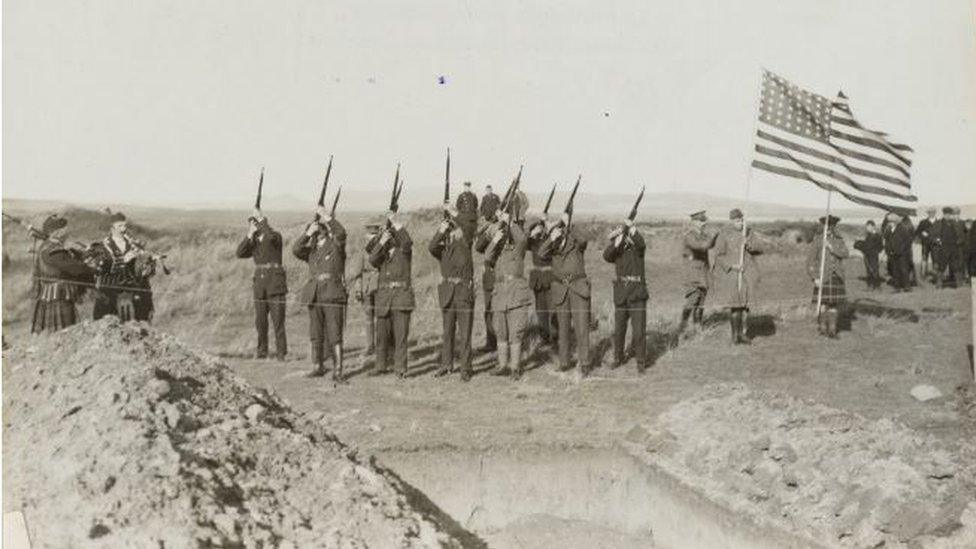
Funeral of the victims of the Otranto at Kilchoman on Islay
- Published1 May 2018
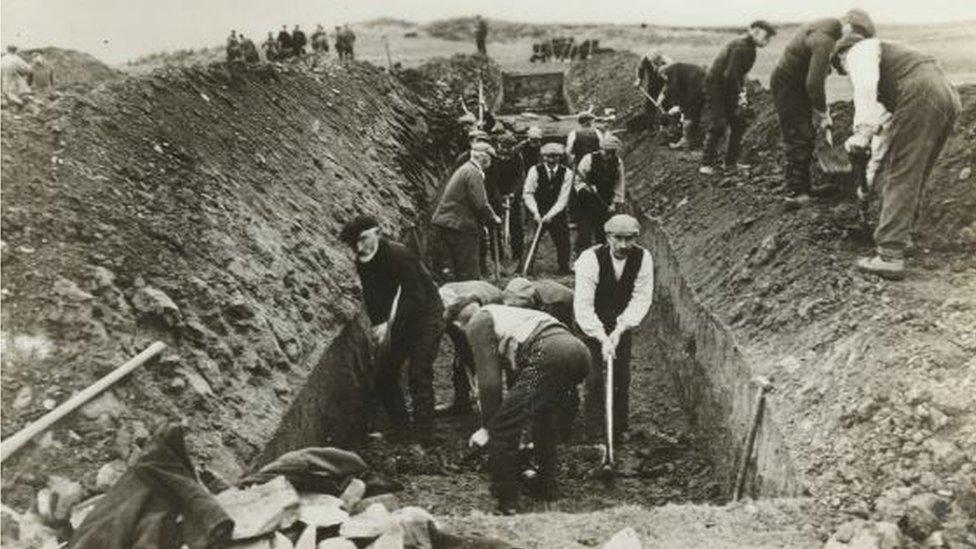
- Published4 May 2018
